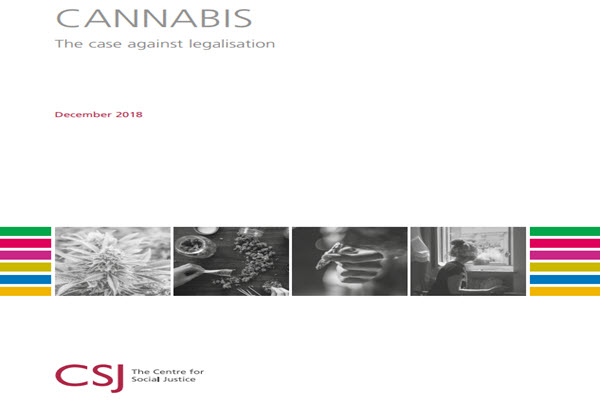Cannabis – the case against legalisation.
 Andy Cook – CEO – Centre for Social Justice UK, 8 Dec 2018
Andy Cook – CEO – Centre for Social Justice UK, 8 Dec 2018
Family First Comment: “Today the Centre for Social Justice pushes back against the increasing narrative of legalisation with a new report outlining why we are against this. The research in this report shows that legalisation would mean more than a million new users under 25, a sharp uptick in frequency of existing users, and hundreds of thousands of people gripped by addiction. The report shows that legalisation would greatly increase use, that arguments around a regulated market are at best a hope, and that the idea of it ending criminal networks are a pipe dream.”
Yep!
#SayNopeToDope
www.VoteNo.nz
When I co-founded the charity TwentyTwenty, its focus was on supporting disadvantaged 16–21-year-olds who were not in education, employment or training. These were kids with learning difficulties, crumbling home environments, disabilities, personal trauma, caring responsibilities, you name it. It was a difficult job. But when those kids turned up stoned, it was an impossible job.
The debate around cannabis use and legalisation is often debated in theory. At TwentyTwenty we lived it every single day and saw the enormous harm it could do, both in the disruption to the daily slog and the long term damage to kids’ brains.
Today the CSJ pushes back against the increasing narrative of legalisation with a new report outlining why we are against this. The research in this report shows that legalisation would mean more than a million new users under 25, a sharp uptick in frequency of existing users, and hundreds of thousands of people gripped by addiction.
The report shows that legalisation would greatly increase use, that arguments around a regulated market are at best a hope, and that the idea of it ending criminal networks are a pipe dream.
The expectation that drug dealers will simply see the error in their ways and become estate agents is neither based in reality nor in the evidence slowly emerging from other countries, where criminals have simply diversified.
Instead we must refocus the cannabis debate on educating about the harms and investing in treatment. Our recommendation of a drug awareness day, akin to the existing speed awareness course, would serve as a meaningful alternative to imposing a fine or issuing a caution. While for some cannabis users, it may never become an addiction, it would offer the chance for early intervention in those for whom it is a problem and simultaneously raise much needed funds for the struggling addiction treatment sector. The reality is that when the CSJ voices its opposition to cannabis legalisation among the power brokers and high thinkers of Westminster, we are seen as an outlier.
But when you meet the people whose lives have been devastated by it, when you spend time in the UK’s addiction clinics and Pupil Referral Units, the prisons and police cells, it’s hard to reach any other conclusion than any increased use is a risk too great to take.
READ THE FULL REPORT https://www.centreforsocialjustice.org.uk/core/wp-content/uploads/2018/12/CSJJ6711-Cannabis-Report-181207-WEB.pdf







